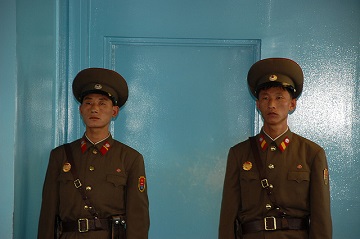North Korea surges ahead in restarting nuclear projects
 The push towards nuclear power goes ahead, as North Korea says it will restart its main nuclear complex.
The push towards nuclear power goes ahead, as North Korea says it will restart its main nuclear complex.The plans to restart the Yongbyon nuclear facility comes after a series of threats against South Korea and American targets. North Korea claims that restarting the complex will boost the country’s nuclear power in both “quality and quantity,” as well as generate additional electricity.
However, restarting a reactor isn’t a quick fix. Refuelling, cooling systems and safety checks all have to be performed, and so it could be six months to a year before a North Korean reactor is back in operation. If this comes to pass, the country will have a fresh source of plutonium which could be used within its nuclear weapons program — something that is of concern internationally.
The reactor used to be the primary source for plutonium for North Korea’s nuclear weapons programme and was closed in 2007 as part of a disarmament-for-aid deal — which later stalled over suspicions concerning North Korea’s capabilities disclosure.
North Korea’s statement was published by the state-sponsored KCNA news agency, which said that it has decided to “adjust and alter the uses of the existing nuclear facilities,” including “readjusting and restarting all the nuclear facilities in Nyongbyon [Yongbyon] including uranium enrichment plant and 5MW graphite moderated reactor.”
A South Korean representative has called the announcement “highly regrettable,” whereas Chinese foreign ministry spokesman Hong Lei told the BBC that restraint is necessary for this “complex and sensitive” issue.
You can return to the main Market News page, or press the Back button on your browser.

